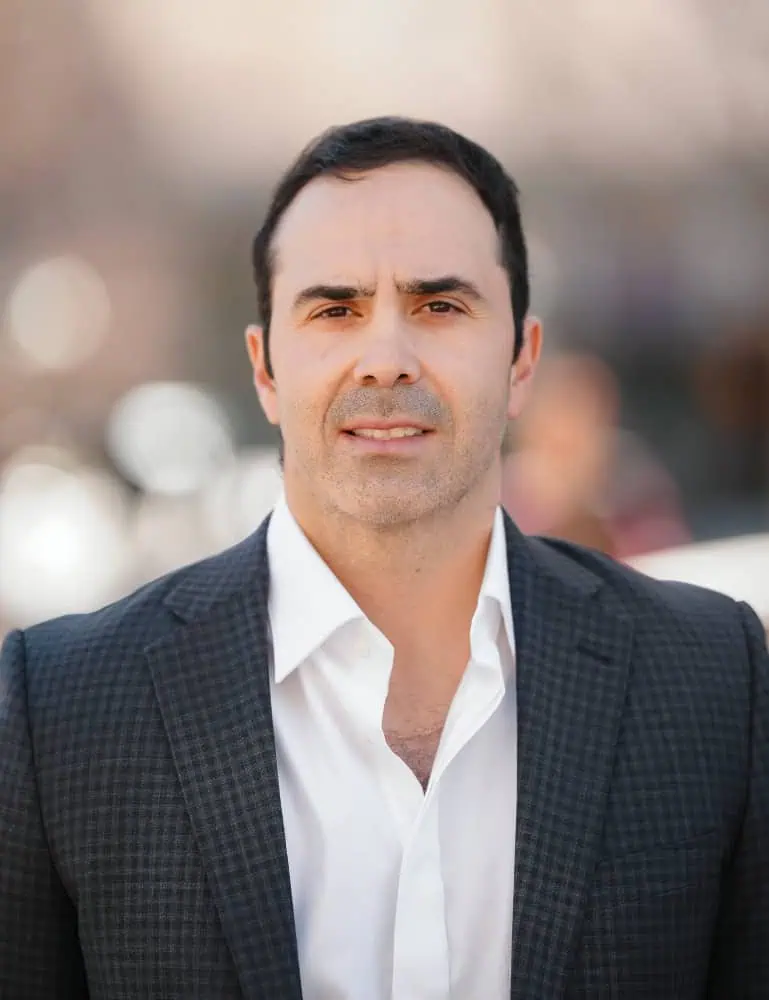Immigration lawyers in El Paso Texas
I’m the best bilingual legal counsel for your immigration case. My mission is to provide personal and reliable legal representation for immigration cases dealing with citizenship, green cards, deportation, work visas, investor visas and other immigration issues. Immigration lawyers in El Paso Texas


FOCUS OF ATTENTION
Magadan Beall - Standing Up for Your Rights
Connect with Us

Trust me as an experienced El Paso immigration lawyer with extensive experience and unwavering commitment. I am here to be a part of your American dream, I will help you obtain everything from a work visa to permanent residency. My passion is your success and I am ready to fight tirelessly for your future in the United States.

Crossing borders, building dreams: our success story
I am the leading immigration firm in El Paso, the largest border city in the country. I am a highly skilled and trusted attorney who has successfully helped hundreds of people in the region overcome immigration challenges, which means I am prepared to meet any challenge that arises in your process.
Proven experience in immigration cases
Commitment to honesty and ethics
Comprehensive, high-quality legal services

Advantages of having me as your
Immigration lawyers in El Paso Texas
Up-to-date knowledge of immigration laws
Legal representation experience
Empathic to any need
Fluency in English and Spanish languages
Patience in the case process
Solving difficult problems
Personalized attention for each case
Recognition and specialization in immigration law
“Every case is a life story. My job is to open paths.”
Benjamin Magadan Beall
Meet Magadan Beall— El Paso’s immigration & citizenship lawyer
Choosing the right immigration lawyer in El Paso can be a complicated decision. There are many professionals in the marketplace who seek to take advantage of the aspirations of the immigrant community, but Magadan Beall does not. My clients’ experiences and comments are a clear testament to my integrity. If you are looking for an honest, ethical and highly skilled immigration lawyer to handle your immigration case, I invite you to contact me. Immigration lawyers in El Paso Texas
Take the next step toward peace of mind regarding your immigration status
Immigration services – El Paso, Texas
Naturalization & citizenship
- Naturalization (U.S. citizenship)
- Derivative or acquired citizenship
- Complex cases (midwife births, dual registration)
Deportation defense
- Representation in removal proceedings
- Defense before immigration judges
- Immigration bond representation
- Defensive asylum
Work & employment visas
- Work visas (including key employees)
- Labor certification
- Investor visa services
- Employment-based visas
Family-based visas
- Family visas for relatives of U.S. citizens or residents
- Fiancé visas (K-1)
- Lawful permanent residence (Green Cards)
Military immigration cases
- Visas for families of military members
- Expedited naturalization for military
- Parole in Place for family members
Additional immigration services
- Affirmative asylum (filed outside of removal process)
- I-9 compliance for employers
- Representation before USCIS, judges, and social workers
- Complex immigration cases
Your trusted legal advocates
Magadan Beall has over twelve years of experience specializing in immigration law. As a bilingual attorney, I am committed to providing close, professional and comprehensive legal attention at every stage of your immigration process.
Our dedication is your satisfaction
Benjamin is a firm believer that every person has the right to choose their country and allegiance. By entrusting your case to us, you can rest assured that you will receive our full attention and dedication. The following are the fundamental values that guide our work:
Respect
I seek to show respect both to my clients and to our community and legal system
Compassion
You do not need to apologize for living without documents or for facing complications in immigration matters
Integrity
I do the right thing and maintain open channels of communication with you throughout the application process or procedures
Empathy
I understand your perspective and provide the detailed and forceful defense that I would want for myself
Service process
As an immigration attorney in El Paso, Texas, I strive to provide a comprehensive and compassionate legal defense, while ensuring that I follow the most efficient and expeditious route possible. The procedure with my clients somewhat resembles the following:
01
Case Evaluation
During this initial stage, I analyze the fundamental information of your situation and explore the possible alternatives available in your specific circumstance.02
Case Consultation
During the consultation, I analyze your situation to offer high-quality service and define the best strategy, evaluating possible challenges and the necessary documentation.
03
Case Management
I take care of meeting all requirements, organizing and gathering documentation, and providing representation in proceedings before immigration judges, USCIS, and other agencies.Our Focus
My goal is to provide exceptional legal services with a focus on integrity, professionalism and respect for both my clients and the community. I am committed to developing personal relationships with each of my clients and expertly guiding them through the complex maze of U.S. immigration law.
Practice Areas
I have over 15 years of experience serving the immigrant community in El Paso. I as an immigration attorney will do everything possible to make sure I obtain the best possible result in your case and will not rest until the task is complete.
Naturalization & Citizenship
Immigration Bond Representation
Employment-Based
Visas
Work visas
Deportation defense
Immigrant visas
Immigration lawyers in El Paso Texas: Experience and Trust on Your Side
Immigration in the United States can be a complex path filled with paperwork, requirements, and constantly changing laws. If you’re searching for an Immigration lawyers in El Paso Texas, it’s likely because you’re facing important decisions for yourself or your family: applying for residency, citizenship, work visas, or defending yourself in immigration proceedings.
In this context, having a legal professional by your side is not a luxury—it’s a necessity. The difference between going through the process alone and having an experienced attorney can directly impact the outcome of your case.
Why hire an Immigration lawyers in El Paso Texas?
Up-to-date knowledge of immigration law: Rules and regulations change often, and a specialized lawyer will always guide you with accurate information.
Personalized attention: Every case is different. A lawyer will review your situation and design a legal strategy tailored to your needs.
Peace of mind: Instead of worrying about deadlines, forms, or interviews, you’ll have a professional overseeing the process.
Defense in complex cases: If your situation requires appearing before a judge or filing an appeal, legal support can make the difference.
Common services an Immigration lawyers in El Paso Texas can provide
An Immigration lawyers in El Paso Texas can assist you with:
Permanent residency (Green Card) applications.
U.S. citizenship procedures.
Work or student visas.
Family petitions to reunite loved ones.
Asylum and deportation defense.
Appeals in immigration cases.
The benefits of hiring a local lawyer in El Paso
El Paso is a border city with unique immigration challenges. Hiring a local lawyer brings specific advantages:
Familiarity with local systems and authorities.
Cultural and language understanding, making communication easier.
Accessibility and proximity, allowing for in-person consultations and personalized follow-ups.
Take the first step toward your immigration future
Immigration processes can feel overwhelming, but you don’t have to face them alone. An Immigration lawyers in El Paso Texas becomes your trusted ally to move forward with clarity and confidence.
👉 Schedule your consultation today and take the first step toward building a more secure future for you and your family.
Magadan Beall is highly recommended by our customers

150+
Reviews
4.7⭐
Rating

80+
Reviews
4.9⭐
Rating
Juan García
“Mr. Beall is an excellent immigration attorney in the city. I am extremely pleased to have chosen him as my immigration attorney. Mr. Magadan helped me obtain my H1B work visa and clarified all the doubts I had. If you need help in your immigration process, I would highly recommend using Mr. Magadan’s expertise.”
María Ramírez
“Magadan Beall really went above and beyond for me. I was sure that with him handling my case, I would get my green card. I even plan to have him oversee my naturalization process. Their performance is exceptional.”
Amparo Galvan
“Mr. Benjamin worked hard on my mother’s residency case and my father’s naturalization case. He answered all my questions. He kept me informed of all updates in the process. My parents got their cases approved in less than a year. I really appreciate him for his honesty from day one and getting us the results we needed. Thank you 🙏”
Facing an immigration problem in El Paso, TX? Contact me now
If you are facing a legal situation related to immigration in El Paso, Texas, please feel free to fill out the contact form below. I am here to help you and look forward to receiving your information so that I can support you in the best way possible best immigration lawyer in El Paso, Texas.


